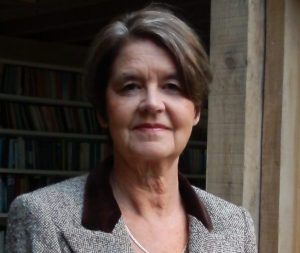 JUDITH PALLOT
JUDITH PALLOT
Principal Investigator, Aleksanteri Institute & Professor emeritus, University of Oxford
I am the leader of the project and, apart from a range of administrative and organisational tasks that come with managing a large project, my role is to provide intellectual leadership for the project and to develop the synergies between the project’s post-doctoral and other researchers.
Now that we are into the second half of the project, many of the administrative tasks that took up much of my time setting up the project have, thankfully, fallen away. Inevitably, the project was badly affected by the COVID-19 pandemic, which ended much of our planned fieldwork and required a reconfiguration of the research questions around the data that we could collect. The Russian escalation of the war against Ukraine in February has caused further problems bringing to an end the cooperative academic links we developed with colleagues in Russia. Despite these problems, we have been able to collect the data we need to proceed to its analysis and the production of results.
Throughout the last two and a half years, members of the gulagechoes team have maintained a steady stream of blogs, media engagements, and articles, and have orgiansied and participated in, largely, on-line conferences. My main role in the last year and months of the project (we have an extension from the ERC to the end of August 2024) is to oversee the writing up of our results and plugging holes that remain in answering the seven research questions. In the near future, we will welcome new members to the team to help with the final push. Personally, I am looking forward to having time to write and have been inspired the initial discussions with the core team about producing the project monograph.
In 2023 we are also looking forward to the Aleksanteri Conference, of which gulagechoes is a sponsor and leading organiser.
Email: judith.pallot@helsinki.fi
Phone: +358505685215
Research profile
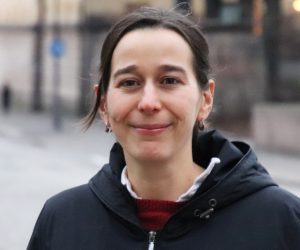
DR COSTANZA CURRO
Postdoctoral researcher
I work on prison systems in the Republic of Georgia, looking at the impact of cultural, social, legal, political and economic transformations since the late Soviet years on Georgian prisons’ order, space and people.
In 2021-2022, I have spent several weeks in a town in Western Georgia which was house to a big correctional colony until the end of the 1980s. Prisoners worked in the vast tea plantation surrounding the town. Together with a Georgian sociologist who worked as my research assistant, we collected interviews with the town’s people who used to work in the colony or were otherwise related to it – and, in some cases, were detained there. Based on this research, I am investigating dynamics and transformations in a prison system from the perspective of a Soviet ‘periphery’. Moreover, the last couple of decades of the Soviet era, which are at the centre of my work, are relatively unexplored by historians and social scientists. In this way, I aim to bring the spatial and temporal diversity of the Soviet penal systems to the forefront of enquiry. I am also interested in criminal subcultures and criminal figures in the Soviet and post-Soviet context. Besides observation and interviews, my research methods include the analysis of archival material, press, as well as prisoners’ memoirs, media and cultural products (literary fiction, broadcasting, film, recording).
Email: costanza.curro@helsinki.fi
CV Costanza Curro
Research profile
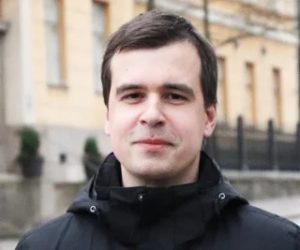
DR MIKHAIL NAKONECHNYI
Postdoctoral researcher
I defended my PhD thesis “Factory of invalids”: Mortality, disability, and early release on medical grounds in GULAG, 1930-1955” at the University of Oxford in 2020.
My principal responsibility as a member of the team is to elucidate the historical dimension of the project research questions, particularly unexplored ethnic facets of the Soviet GULAG (1930-1955). Using historical quantitative and qualitative methods, I attempt to understand if the Soviet system of judicial incarceration was indeed ‘ethnically blind’ (as it is widely believed in contemporary scholarship). I also explore how ‘ethnicity’ was construed and constructed in the unique Soviet penological context, building upon contributions of both historians (such as Terry Martin and Francine Hirsch) and penal sociologists (such as Gresham Sykes and David Garland).
In my research, I try to mitigate the usual drawback of the GULAG studies – the overconcentration on a single bureaucracy (namely the NKVD-MVD, Ministry of the Internal Affairs). Therefore, I look at how questions of ethnicity and ethnic relations were interpreted not only by the NKVD-MVD itself, but also by the two principle GULAG competitors: The Procuracy (Department of oversight over places of confinement) and The Ministry of Justice (Directorate of camp courts). As my working hypothesis claims, the crises periods (war, terror campaigns, national famines, political upheavals) catalysed ethnitization of penal policies in the Soviet case.
My other interest comprises the construction of prisoner morbidity and mortality statistics and its manipulation by penal bureaucracies in transnational comparative context. Kritika has published my research: Explorations in Russian and Eurasian Studies, Cahiers du Monde Russe, Journal of History of Medicine and Allied Sciences as well as Indiana and Pittsburgh University Presses.
Email: mikhail.nakonechnyi@helsinki.fi
CV Mikhail Nakonechnyi
Research profile
 DR MYKHAILO ROMANOV
DR MYKHAILO ROMANOV
Visiting researcher
In September 2022, the Academy of Finland made funding available to attach Ukrainian scholars to ongoing research projects in Finland. Under this programme we have been able to invite Mykhailo Romanov to be attached to GULAGECHOES and the Yugoslavian Penal Politics projects in the Aleksanteri Institute. Under current Ukrainian regulations, Mykhailo will be able to join us in person for only one month and otherwise will be contributing to both projects remotely.
Mykhailo is a scholar of penitentiary law and a prisoners’ rights activist. He is an Associate Professor at the Yaroslav Mudryi National Law University and at the Poltava University of Economics and Trade. He has PhD in Penal Law from the Yaroslav Mudryi National Law University and is an author of over forty scientific publications including four monographs and two co-authored books. He is also a penitentiary expert for the Kharkiv Human Rights Protection Group (KHPG) and a temporary member of the working group on drafting the law on penitentiary system in Ukraine.
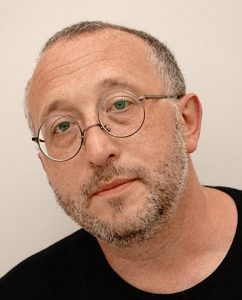 DR YURI SOROCHKIN
DR YURI SOROCHKIN
Postdoctoral researcher
My academic background is Cultural History and Literature Studies. I’ve been researching and writing on contemporary Russian fiction and poetry and on the public discourse of the Soviet pre-war period.
I am a new member of the gulagechoes team, joining in late 2022. My principal responsibility is to study the ways ethnic identities are constructed in the former prisoners’ memoirs. The problematic character of life writing texts as historical sources, particularly pronounсed in memoirs, necessarily implies such research to make use of various approaches from the field of literary studies while placing the texts in question in broader historical, social and cultural contexts. In other words, the very broadly construed conceptual frame for my close reading of the prisoners’ memoirs is comprised of the New Historicism perspectives and the approaches common for narrative analysis. The very reason to include the study of prison memoirs in the project focused on the construction of ethnic identities is that memoirs are, by definition, texts based on making certain identity claims. My intent is to find what particular position ethnicity holds in the identity claims made by the texts in question and place this position into the broader contexts of Soviet/Russian history and penal sociology.
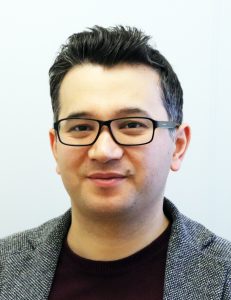
DR RUSTAM URINBOYEV
Associate researcher for gulagechoes
I am associate professor and senior lecturer at the Department of Sociology of Law, Lund University in Sweden. I was educated at Lund University (PhD), Maastricht University (MPP) and University of World Economy and Diplomacy (LLB), with a postdoctoral research stays at the University of Cambridge and University of Copenhagen. As an interdisciplinary socio-legal scholar, I study migration, corruption, governance and penal institutions in the context of Russia, Central Asia and Turkey. I am the author of Migration and Hybrid Political Regimes: Navigating the Legal Landscape in Russia (2020), published by the University of California Press.
I am affiliated as an associate researcher with the GULAGECHOES project. My role is to examine the role of ethnicity and religion in prisoners identity construction through the empirical study of Uzbek ex-prisoners. This is connected to Research Question 3 and 4, which focus on the patterns of ethnic, racial and religious co-identification among transnational prisoners and how these processes shape their political association and vulnerability to radicalization. In 2022 I was awarded a one-year sabbatical grant for writing a book on Uzbek prisoners in Russian penal system. As of January 1, 2023, I will take full-time leave from my current duties so that I can fully concentrate on the book project.
Email: rustamjon.urinboyev@helsinki.fi
CV Rustam Urinboyev
Research profile
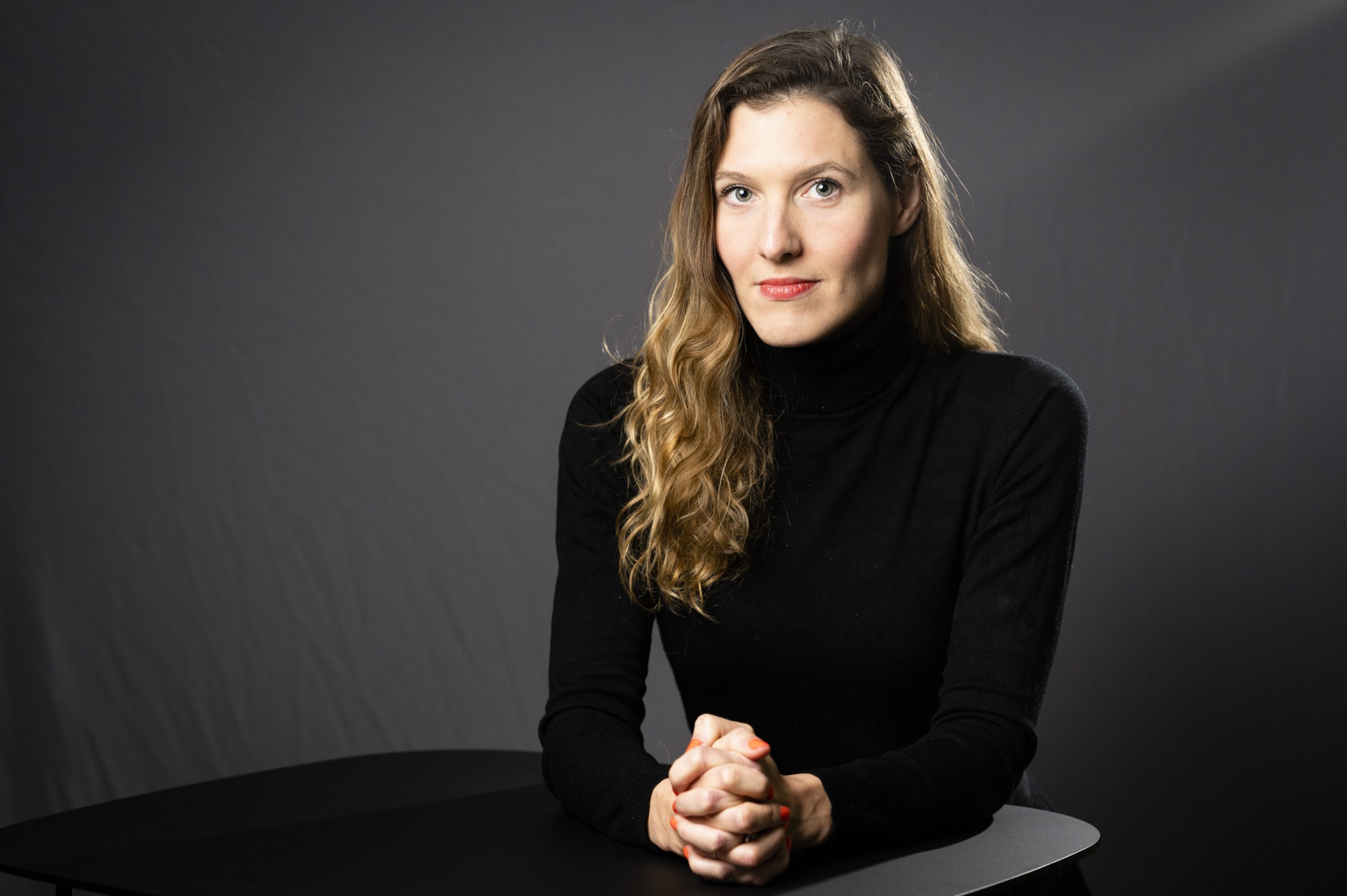
DR OLGA ZEVELEVA
Postdoctoral researcher
I am a political sociologist focusing on systems of social control. I defended my PhD in sociology at the University of Cambridge (2019), and hold a PhD in sociological theory and methods from the Higher School of Economics (2016).
In 2019, I joined the University of Helsinki as a postdoctoral researcher on the GULAGECHOES project, where I work on social control in the context of penal systems. I examine the question of how and with what consequences ethnic, civic, and political self-identification forms among prisoners. I have conducted fieldwork in Russia and in Estonia.
I work with several forms of data. First, I work with narrative interviews conducted among former prisoners in Russia and Estonia. Second, I analyse interviews with human rights workers and the discourses they produce to understand how these organisations create categories of vision and division of prisoners, and what effects this has on incarcerated populations. Third, I analyse policy documents that detail prison reform.
I have teamed up with coauthors to collaborate on comparative work, addressing how Council of Europe criminal justice reform has shaped differing experiences of punishment among various groups in post-Soviet prisons, with a focus on Estonia as compared with Georgia, Lithuania, Russia, and Belarus. During the peak of the COVID-19 pandemic I examined the uneven effects of prison lockdown policies on diverse populations within the penal systems of 47 European countries.
I also liaise with the media, human rights groups, and international organisations to share the results of our research.
Email: olga.zeveleva@helsinki.fi
CV Olga Zeveleva
Research profile
Dr. Lili Di Puppo
University Researcher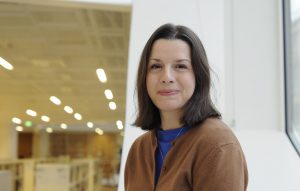
I am a social anthropologist focusing on religion, memory, sacred sites, the environment and ethnicity. I have conducted fieldwork in Russia’s Volga-Ural region, Moscow and Georgia. I was an assistant professor of sociology at the Higher School of Economics in Moscow from 2013 to 2022. I have published two special issues on Islam in Russia and am finalizing two additional ones on Muslim ontologies, transcendence and anthropology and local environmental movements in the Eurasian region. I am the convenor of the European Association of Social Anthropology’s network ‘Muslim Worlds’ and co-editor of the book Peripheral Methodologies: Unlearning, Not-Knowing and Ethnographic Limits (Routledge, 2021).
I joined the gulagechoes team in 2022 as a visiting fellow and since October 2023 as a university researcher. My main responsibility is to analyse interviews with religious prisoners with the aim of understanding what role religion plays in the prison system, particularly in Russia. I focus my study on Islam but am also interested in other religions, including Russian Orthodoxy, and the case of religious converts. I adopt a comparative perspective to understand how a religious identity in prison is experienced differently by prisoners depending on their ethnic identities, places of incarceration and individual religious trajectories.
Email: lili.dipuppo@helsinki.fi
Research profile: https://www.helsinki.fi/fi/tutustu-meihin/ihmiset/henkilohaku/lili-di%20puppo-9448439
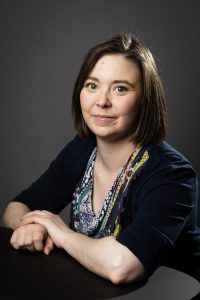 RIIKA SARASJÄRVIProject Coordinator
RIIKA SARASJÄRVIProject Coordinator
I am the coordinator of the Gulagechoes project, managing various administrative duties, especially the ones related to reporting. However, as I have a long history in customer service, I find that any task contributing to the project running smoothly is a relevant one. I coordinate several ERC-funded projects at the University of Helsinki, which helps me to gain insight about different aspects of a project during its life cycle. I aim to find practices and synergies that support the administration of each project, helping the project to reach its goals successfully.
I hold a Master’s degree in Food sciences, in which I majored in marketing. However, I am also a Bachelor of Arts, as my interest in languages and cultures led me to study Nordic languages and Asian studies. This is why I particularly enjoy working with projects in the Humanities field. This project provides an opportunity to learn about an interesting topic as well as meeting international experts of the field. As a large EU-funded research project it also challenges me professionally, and as the project progresses, the tasks that I encounter develop, too.
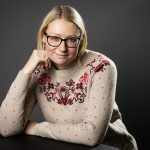
Yuliya Brin
Research Assistant
Yuliya is a legal expert and holds a master’s degree from Turku University in Comparative Law and is currently completing her second master´s degree in Russian Studies at Aleksanteri Institute. Her personal research topic is Traditional Values and Domestic Violence: legal challenges in four post-Soviet countries Russia, Belarus, Armenia and Ukraine.
She has contributed research on the GulagEchoes project as a research assistant. Her contribution to the research project was a case study on prisoner ethnic discrimination in Georgia and Romania. Her aim was to examine the local laws harmonization with EU principles of ethnic discrimination in the scope of prisons. Her research examined the vagueness of definitions or treatment of ethnic discrimination in the law in Romania and Georgia and how this impacts protection of ethnic minority prisoners’ human rights. She was also in charge of updating the blog and social media of the GULAGECHOES team.
Ryan Reed
Technical Assistant
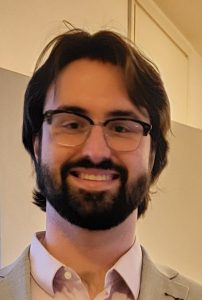
I began work with the project in March of 2023 as a trainee but later in the year I took on the title of Technical Assistant. My main responsibilities include building and maintaining the project’s archive, support with software analysis, data collection from online sources, and the upkeep of the Gulagechoes website and its forthcoming social media accounts. I assist the team’s research by providing efficient access to our source materials and specialized perspectives on data via software like Atlas.ti.
I hold an MA in Russian Studies from the University of Helsinki, having completed my MA thesis entitled “Gulag as Useable Past: FSIN and the Myth of the Great Patriotic War,” under the supervision of Judith Pallot in May of 2023. My research gravitates around the contemporary Russian Prison Service (FSIN) and its leveraging of the past through commemorative activities and reconstruction of historical narratives. I began my doctoral studies, alongside my work with the project, in January of 2024.
As “curator” of the Gulagechoes online archive, any inquires about materials can be directed to my email below. Whilst most documents from the project are under embargo, I can provide information about the types of sources we have created and provide publicly accessible metadata on our collection.
ryan.reed@helsinki.fi
OTHER RESEARCHERS WHO HAVE CONTRIBUTED TO THE PROJECT:
Dr. Laura Mafizzoli, is a social anthropologist who joined the Gulagechos team in 2023. She is currently working on two articles, co-authored with Dr. Curro and Dr. Gavrilova, that explore the carceral experiences of ethnic minorities in Georgia and the memories of those who experienced the repressions and the Gulag in the 1930s in Georgia.
Dr. Elena Katz, visiting researcher, Elena’s research and teaching are in Russian Area Studies, literary and cultural history. . She has been involved in the gulagechoes project from the beginning, participating in the launch event in the Aleksanteri in February 2019. Currently, she is contributing to the project by coding and producing preliminary analyses of the coded interviews collected by members of the project team since 2019.
Dr. Alla Bolotova, post-doctoral researcher, Aalto University. Alla was sub-contracted to the gulagechoes project both to code references to ethnic minority prisoners in testimonies of former prisoners and to monitor internet posting about the incarceration of Muslim activists on Russian-language NGO sites.
Dr Sofya Gavrilova, Liebniz Institute for Regional Geography (IfL). Sofya is a specialist in GIS and has cooperated with the PI on various projects in the past, including the development of the gulagmaps,org website, which is sponsored by gulagechoes and Christ Church, Oxford. Apart from managing the gulagmaps.org website, she is the gulagechoes cartographer, producing maps for the project’s publications and in writing articles and blogs about the spatiality of the gulag and current prison system.
Dr Gabriela Groza, Bolyai University of Cluj-Napoca. Gabi was sub-contracted form 2019 to take interviews in prisons in Romania for gulagechoes. Her work was interrupted by the covid-19 pandemic but she resumed interviewing prisoners in 2021. She presented the results of these interviews at the annual BASEES conference in Cambridge UK, under the title, “Ethnic relations in the Romanian penitentiary system – equality and power”.
Dr Larisa Kangaspuro, Larisa was employed as research coordinator on the gulagechoes project from 2018 to 2022 during which time she arranged the launch workshop in 2019 and annual or domestic workshops in 2020 and 2021, looked after the project website, among other tasks. During her employment by gulagechoes, she was able to pursue her interest in the prison system of the period of the Grand Duchy of Finland and present on this topic at various conferences.
Dr Vakhtang Kekoshvili, During the covid-19 pandemic Vakho was contracted by gulagechoes through Penal Reform International – South Caucasus to conduct a pilot study of former prisoners in rural Georgia. Once the pandemic allowed Dr Curro to travel to Georgia, Vakho continued to contribute to the project as field-assistant.
Jessica Simpson, University of Toronto, Canada, During the spring of 2021 Jessica joined the gulagechoes team as an intern under the Aleksanteri Institute’s internship agreement with the University of Toronto. Unfortunately, because of the covid-19 pandemic she was only able to join us virtually. Jessica did valuable work analyzing and summarizing all the Committee for the Prevention of Torture reports of the Council Europe for the countries of East Central Europe and the CoE members of the former USSR.
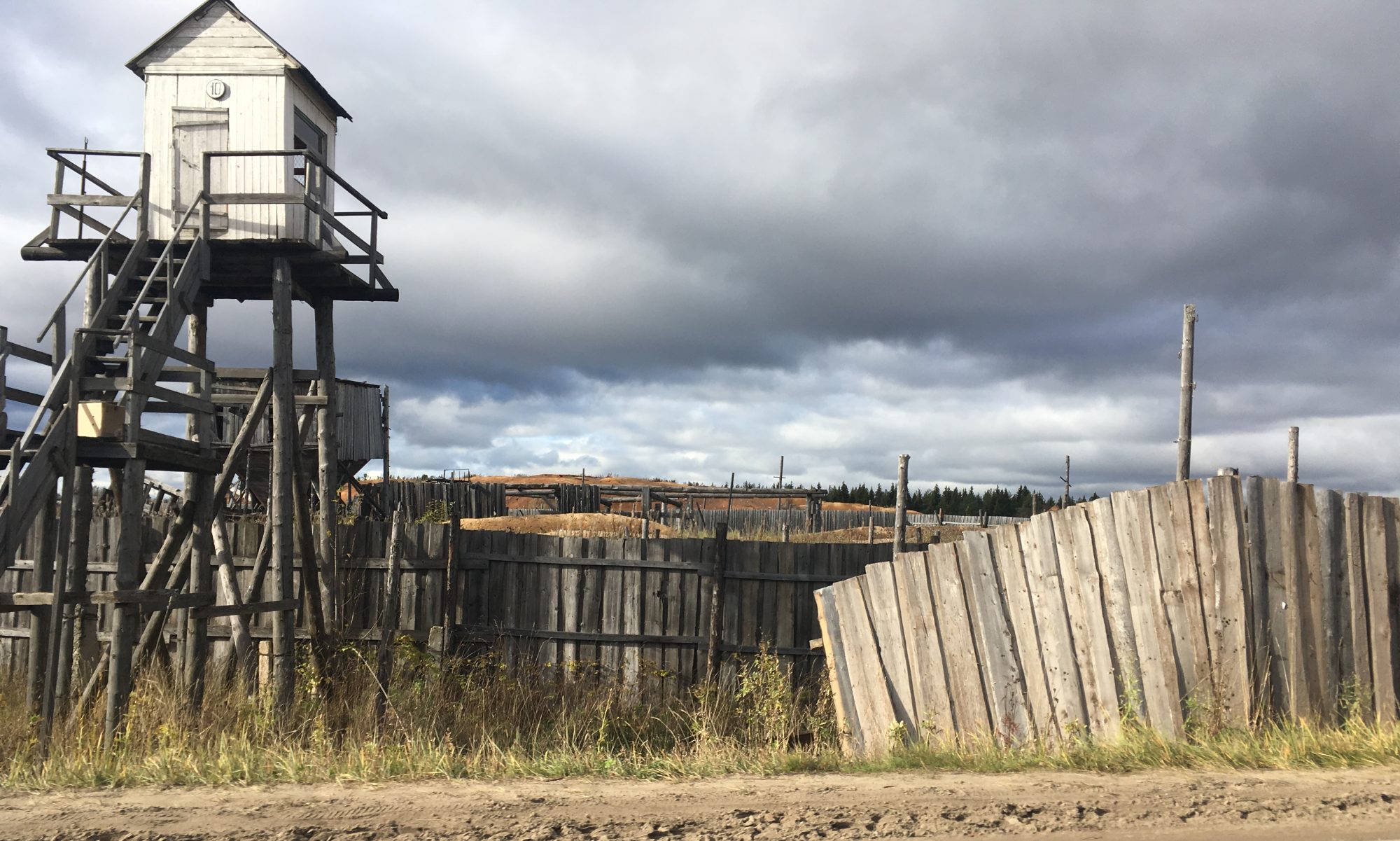
One Reply to “Team”
Comments are closed.